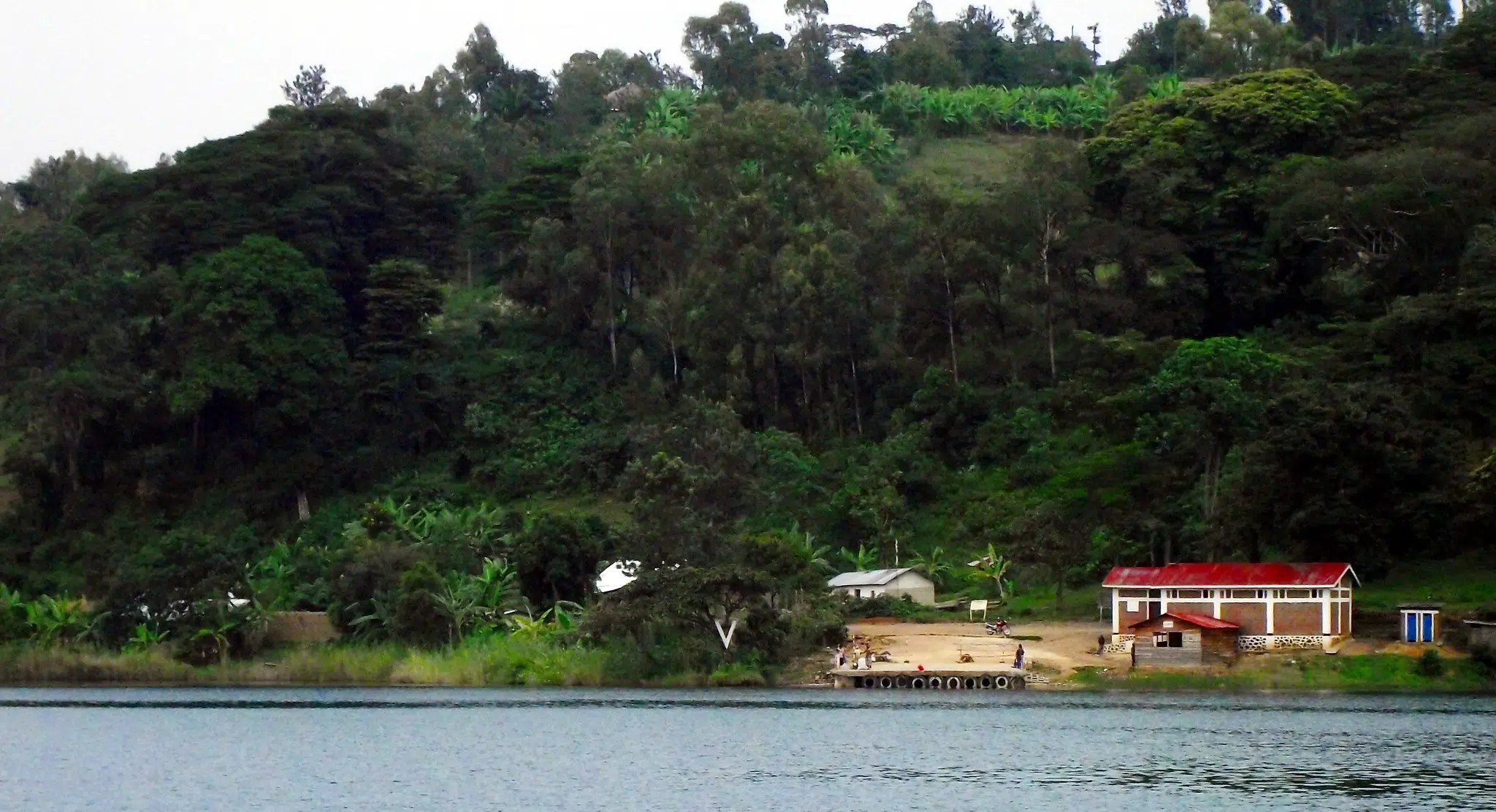How One Woman is Rebuilding Safety Networks in South Kivu
Kalehe Center — South Kivu, DRC
Furaha* is 40 years old. She’s a married mother of nine, and was born in Luzira. It was in Kalehe, though, that she built her reputation as the owner of a beloved restaurant that NGO workers loved eating at. In fact, Furaha's restaurant was a cornerstone of the local economy, as the livelihoods of market gardeners, livestock farmers, and food vendors revolved around her business. Then the war disrupted everything.
Shortly after her home was looted, she lost both her aunt and nephew in nearby bombings. Fearing for her family's safety, Furaha decided to flee to the mountains with her children. They survived in a makeshift shelter for two weeks. When her daughter Khadija fell sick, Furaha knew she couldn’t stay there any longer. She returned to Kalehe with her children, while her husband took refuge on Chigera Island, where he began the slow process of rebuilding.
Back in Kalehe, Furaha's life was far from simple. Her job became a source of anxiety, due to the fact that the women who once supplied her restaurant were no longer coming—“it's just too risky,” they said.
Furaha realized that she'd have to adapt to the societal consequences of the war, which meant recognizing ongoing safety concerns. So, she started calling the women, arranging meetings in discreet places, and working with them to map out alternative routes that avoid armed groups. In some cases, Furaha has even traveled to the women herself.
These touchpoints have gone a long way in reinventing her supply system, as it strengthened the women's trust and safety, without the need for formal security measures.
Now, information flows through texts, phone calls, and whispered exchanges during prayer gatherings. They share updates on calm areas, checkpoints, armed movements, and rising tensions. Even the youth on the football field are involved, as they help spread news and guide at-risk neighbors toward safer ground.
What began as an improvised network has organically evolved into a fully functional and community-led early warning system. Furaha, without training or a fancy title, is one of the people helping hold it all together.
Although she doesn’t use terms like “risk analysis” or “mitigation strategy,” before scheduling deliveries, she:
- assesses threats.
- identifies the safest exchange locations with her suppliers.
- avoids areas that have been mutually identified as hotspots.
- adapts routes based on the latest information.
Providing for her family is essential. But, Furaha has discovered that the relationships she's established with her customers and suppliers provide her with much needed social connection and have improved her mental health. She likes to say, “I hold on because I talk with my customers. It makes me forget the lifestyle I’ve lost.”
While Furaha isn't offering her peers physical protection gear or weapons, what she's doing daily is still a powerful form of protection, because it's built with trust, awareness, and presence.
And she’s not alone.
There are many others like her, subtly building systems of care, adapting quickly to changes, looking out for each other, and building what’s needed from the ground up.
Instead of replacing local efforts, Unarmed Civilian Protection strengthens them. It offers structure, consistency, and reinforcement, so that if danger strikes again, people like Furaha will be prepared and they won't have to face it alone.

